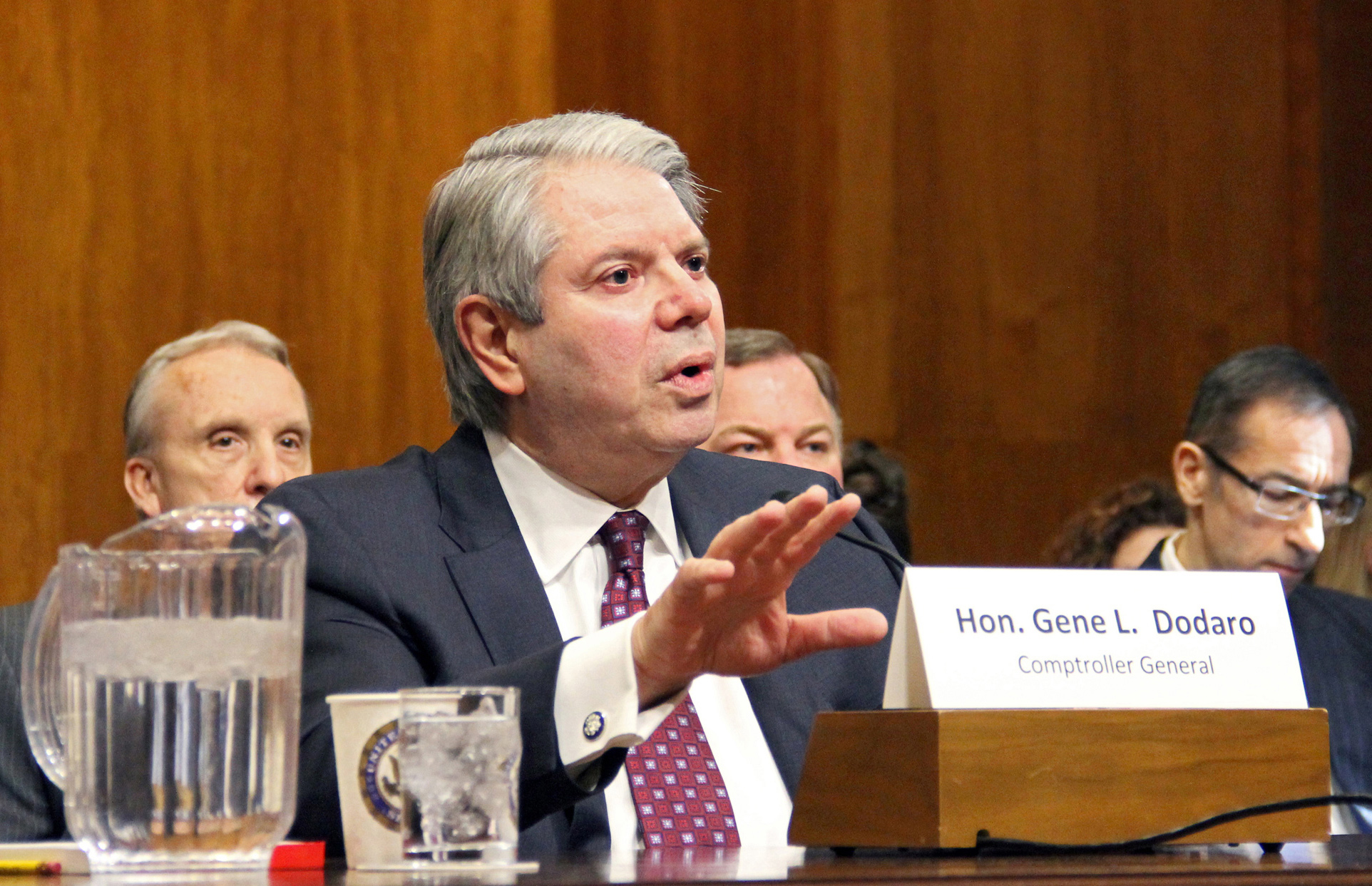WASHINGTON – Donald Trump and Bernie Sanders don’t agree on a lot. One issue on which the two presidential hopefuls do share a kinship is their hatred of “waste, fraud and abuse” in Washington.
“If you look at the IRS, if you look at every single agency, we can cut it down, and I mean really cut it down and save. The waste, fraud and abuse is massive,” Republican candidate Trump said during an exchange with moderator Chris Wallace during Fox News’ Republican debate March 3.
Here’s Sanders’ take from a Senate Budget Committee hearing last year. “Simply put, the Pentagon continues to be riddled with waste, fraud and abuse of taxpayer funds to a degree unmatched across the federal government.”
That same committee – where Sen. Sanders serves as the ranking minority member—met Wednesday to hear from the Government Accountability Agency on unreliable federal financial data and waste in Washington. The focus was on taxes and defense.
If Sanders (who was absent for Wednesday’s hearing), Trump and the other candidates are serious about shoring up government finances, GAO Comptroller General Gene Dodaro has suggestions.
For starters, there’s the fact that Internal Revenue Service left $385 billion in uncollected taxes in its most recently estimated year, 2006. The GAO, Congress’ investigative arm, hasn’t found that likely to change immediately.
“For right now,” Dodaro said, “they don’t have at the ready accurate information on individual taxpayers to the point that you really need to in order to efficiently and effectively manage the system. And it puts an undue burden on the (taxpaying) citizens.
“They have system plans to (address their issues), but their track record has been a little spotty over the years, whether they can actually bring those changes to fruition, but we continue to monitor that,” he said of the IRS.
It doesn’t end there. Another $137 billion was lost in Fiscal Year 2015 in “improper payments,” made by government agencies, a blanket term for any funds paid out that aren’t supposed to be.
One of the biggest issues facing the GAO in attempts to assess the government’s finances is the weakness in financial reporting and accounting from different agencies.
Sen. Mike Enzi, R-Wyo., who chairs the Budget Committee, said it’s so sketchy that the GAO is unable to even issue an audit opinion on the government’s books. Investors would run away from a private company in that state, Enzi said. “But we can’t run away from a government in which we are all stakeholders.”
The largest obstacle is the Defense Department. The GAO’s Dodaro said the agency accounts for 30 percent of the federal government’s assets and 15 percent of its net costs, but none of its major branches is able to pass an audit.
By Dodaro’s estimate, the Defense Department can account for less than 10 percent of its assets. The Corps of Engineers and the military pension system are the only divisions that could pass an audit, he said, despite years of pressure from the GAO and Congress.
Sen. Charles Grassley, R-Iowa, recalled that a law passed a half-dozen years ago mandated that the Defense Department should be “auditable” by 2017.
“So then they start with the Marine Corps audit since it’s the smallest. And there’s all sorts of shenanigans going on over the period of two to three years to make sure that they’re certifiably auditable,” Grassley said. “Well it was—I don’t know what adjective to use—it was just a fraud.”
Grassley, chairman of the Senate Judiciary Committee, said he asked the GAO to investigate and “they made the Defense Department withdraw the Marine Corps audit until it gets right so it can be audited.”
Every senator who spoke insisted that the Pentagon gets its accounting in order.
“Right now, the DOD is right around $600 billion (in spending),” said Sen. David Perdue, R-Ga. “People say ‘that’s just too large to audit.’ Well, Wal-Mart’s not much smaller than that. Imagine if (Wal-Mart CEO) Mike Duke or any of the other leaders down there came into the SEC or the IRS and said ‘boys, I’m sorry, we’re just too big to be audited; we’ll defer to next year.’ I don’t think that would work very well.”
Chairman Enzi pointed out that every four years there’s an opportunity for the committee to work in a bipartisan fashion without knowing which party will hold the majority in the coming year. This is one of those years, he noted, and it sounds like there is bipartisan support on Capitol Hill for more accountability of the federal budget – as well as on the campaign trail.

